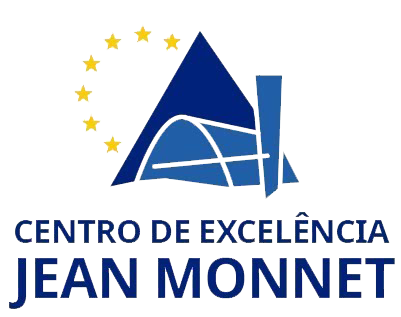Cities and regions outline their ambitions in view of COP28 and take stock of the Swedish Presidency’s climate work

According to European Committee of the Regions, recognising formally the role of subnational governments in global climate negotiations, accelerating and scaling up climate action by working across all levels of governance and sectors, and providing direct EU financing and technical assistance to cities and regions are key demands of the European Committee of the Regions’ draft opinion “UNFCCC COP28: the role of subnational authorities in keeping climate ambition on track”, which was adopted at the Commission for Environment, Climate Change and Energy (ENVE) on 29 June after an exchange of views with MEPs Lídia Pereira and Maria Spyraki.
Rapporteur Rafał Trzaskowski (PL/EPP), ENVE chair and Mayor of Warsaw, will be one of the leading members of the CoR delegation to the COP28, which will be held in Dubai in December. The day before the ENVE meeting, he chaired the CoR COP28 delegation’s first briefing with the European Commission.
“Cities and regions are key actors in driving climate ambition forward creating green jobs, reducing air pollution, or improving human health and wellbeing. In many cases, they are more ambitious than their national governments. That is why their commitment and efforts should be formally recognized in the COP decision documents. I appeal to the co-legislators, particularly to the Spanish Presidency, to acknowledge the pivotal role of local and regional leaders in the EU Mandate for the COP28 in Dubai. I also appeal to the European Commission to give direct funds to regions and cities implementing the goals of the Paris Agreement”, Mr Trzaskowski said.
Even with drastic reductions in greenhouse gas emissions, global warming is likely to exceed 1.5°C this century. The CoR draft opinion underlines that the first Global Stocktake, which will conclude at the COP28 in Dubai, must lead everyone on an urgent path to accelerate climate action. The opinion recalls that cities are responsible for over 70% of global greenhouse gas emissions and consume about 80% of the world’s energy, and it is thus crucial to ensure increased involvement of LRAs in the process of updating and implementing nationally determined contributions, national adaptation plans and long-term strategies.
MEP Lídia Pereira (PT/EPP), shadow rapporteur of the European Parliament resolution on COP28, also highlighted the “critical role of cities and regions” in combating climate change: “They are drivers of innovation, where practical solutions are being implemented. Local and regional governments, along with businesses and community organizations, have the power to drive change, promote sustainable urban development, and implement ambitious climate action plans. Their initiatives in renewable energy, public transportation, waste management, and sustainable urban design can serve as models for others to follow.”
MEP Maria Spyraki (EL/EPP), co-chair of the EP Intergroup on Climate Change, Biodiversity and Sustainable Development, pointed out in her intervention “the locality of the consequences of climate change” with natural disasters becoming more and more frequent, which requires a “locally led adaptation approach”. Following a proposal from the European Parliament, 15 July is set to become an annual EU day for the victims of the global climate crises. Ms Spyraki also urged to ensure that all provisions on financing agreed in COP26 and COP27 will be met, especially regarding the yearly USD 100 billion climate financing target to developing countries.
With the Swedish EU Council Presidency reaching its end, ENVE members exchanged views with August Pettersson, Energy attaché at the Permanent Representation of Sweden to the EU, and Sarah Nelen, deputy head of European Commission’s Executive Vice-President Frans Timmermans’ cabinet. Mr Pettersson pointed out interinstitutional agreements on two key Fit for 55 files – the energy efficiency and renewable energy directives – as key achievements of the Swedish Presidency.
In the afternoon, two other opinions currently in preparation stage were discussed. Joško Klisovic (HR/PES), President of Zagreb City Assembly, is drafting an opinion entitled “Towards a multilevel Green Deal governance: the revision of the Governance of the Energy Union Climate Action regulation“, which focuses on how cities and regions want the Green Deal governance to evolve in the future, also with a view to the approaching renewal of the EU mandate. Arianna Censi (IT/PES), Member of the Local Executive of Milan in charge of mobility, is rapporteur of an opinion on the European Hydrogen Bank, which aims at accelerating investments to reach the REPowerEU target of producing domestically 10 million tonnes of green hydrogen and importing 10 million tonnes of green hydrogen by 2030.
ENVE members also appointed Juan Manuel Moreno Bonilla (ES/EPP), President of Andalusia, as rapporteur for an upcoming opinion on Green Deal and Health, which will be discussed at the next ENVE meeting in Málaga on 28-29 September.
Marieke Schouten (NL/Greens), Alderman of the municipality of Nieuwegein and co-chair of the Zero Pollution Stakeholder Platform, provided an update of the platform’s recent work. Two key zero pollution files – opinions on the reform of the EU’s air quality and urban wastewater treatment legislation – will be voted at CoR plenary on 5 June, following a debate with Virginijus Sinkevičius, Commissioner for Environment, Oceans and Fisheries.
Lastly, ENVE chair Trzaskowski announced that the second chapter of the Green Deal Going Local Handbook, focusing on energy measures through renovation of buildings, is now available, providing guidance to local and regional authorities.
Source: https://cor.europa.eu/en/news/Pages/enve-29-june-recommendations-for-cop28.aspx

